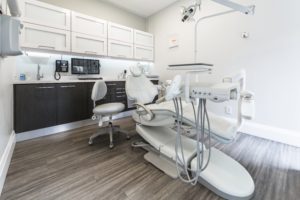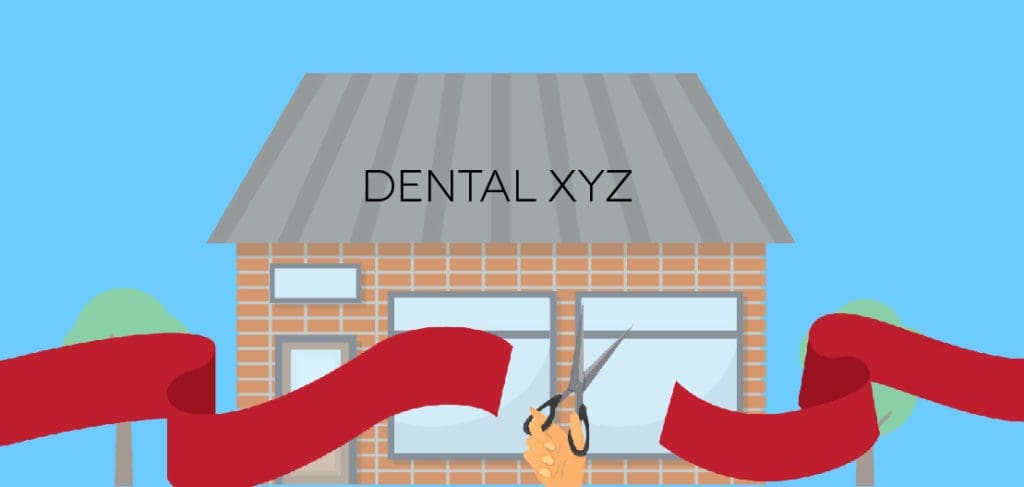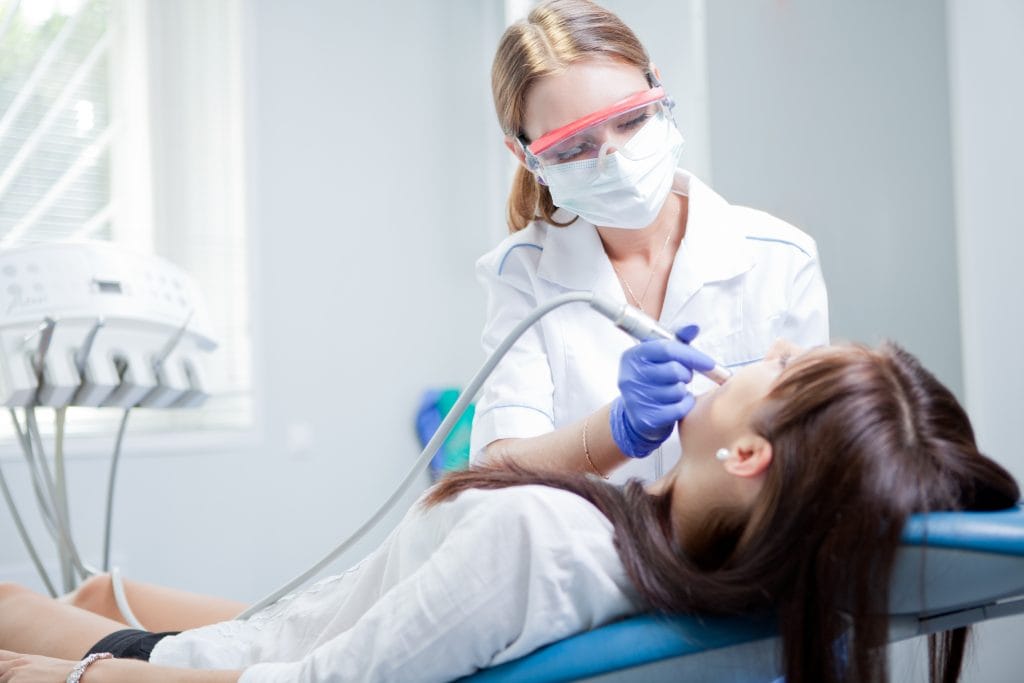Last updated on November 28th, 2025 at 06:50 pm
Last updated on November 13th, 2025 at 02:12 pm
 Deciding to start your own practice is one of, if not the biggest “business” decision you’ll make in your career. And how you start out can have major bearing on your initial and future success, not to mention, stress levels.
Deciding to start your own practice is one of, if not the biggest “business” decision you’ll make in your career. And how you start out can have major bearing on your initial and future success, not to mention, stress levels.
With that in mind, I wanted to point out several simple, yet urgently important guidelines that can be applied to multiple scenarios. They’re also applicable for use when you open your first office or sixth additional location.
Before I dive into this week’s blog post, I wanted to let you know we have FREE e-books available! They’re chock-full of incredible information to help you maximize your new dental office, such as comprehensive case acceptance, having a profitable hygiene department, improving customer service, and more.
Now, I’ll start with a word of warning:
If you have an office already and are looking at a second location, make sure your first location is not in a condition where everything is centered around you (i.e. you’re the primary producer), because adding another location most likely won’t increase your production—it’ll just split it. With your new location, you’ll end up working the same hours, producing the same, but having double the overhead.
You’re better off maximizing your first location until you can organize it and hire associate doctors or partners that produce stably, so that you can actually add production with the next location instead of splitting your own production. There are a few different ways this can be done. For that matter, our COO, Jeff Blumberg did a series of posts on this very subject (additional locations) that you can find here. And as always, feel free to email me at SabriB@mgeonline.com if you’d like help with your particular situation.
(Related: How to Know if You Should Expand Your Dental Practice)
When looking at a new office, the first question normally is:
Do you want to open a practice from scratch (startup) or purchase an existing one?
 In most cases, it is usually cheaper to buy an existing office—even if upgrades are necessary—than to build a practice from scratch. (Obviously some practices can be overpriced and there are other exceptions to the rule, but this is usually the case.)
In most cases, it is usually cheaper to buy an existing office—even if upgrades are necessary—than to build a practice from scratch. (Obviously some practices can be overpriced and there are other exceptions to the rule, but this is usually the case.)
Don’t look at it just in terms of the physical location. You don’t want to think “I can buy this practice for $300k or build one for $300k and have it exactly the way I want to! So obviously a startup is better.” A startup practice has no patients, so your marketing budget is going to be FAR greater for a longer period of time than an existing practice.
However, if you’re passionate about starting your own office from scratch, or you want to open up in an untapped area that doesn’t have any practices for sale that fit the criteria I’ll outline below, you may still opt for a startup.
First, I’ll list my guidelines for a startup practice, followed by guidelines for purchasing an existing office:
If you opt for a startup practice, here are a few things to look for:
a) Pick the right location.
Ultimately, you want the maximum number of high-quality new patients for the minimum marketing budget required.
Following these tips can help—although in many cases you won’t be able to get lucky with every single one of them, so there can be some flexibility if necessary:
- Don’t open up in an oversaturated area (i.e. 10 dentists on the same block).
- Visibility is important. Putting it in an office building where there is no foot traffic, passersby can’t see it, etc., makes life more difficult. Ideally, you’d be in a location where it’s clearly visible from a busy road, there is foot traffic, and next door or across the street from a notable landmark that everyone in your neighborhood is aware of (such as a large grocery store, popular restaurant, Home Depot, Starbucks, etc.). Strip mall locations are usually easier than office buildings.
- Ensure you can have prominent signage. Some locations or municipalities have such restrictions on signage that even if you’re in a visible location, people still won’t know you’re there because you can’t clearly display your branding and the fact that you’re a dentist. Small lettering on a window or a tiny black-and-white rectangle on a sign with 20 other businesses isn’t good enough.
- Research the demographics. Do your homework here. Look at things like income level, family size, homeowners vs renters, etc.
b) Do your homework ahead of time
Anytime you’re opening a startup, there are a number of things you need to consider before getting your business loan and opening the doors, otherwise your budgets and timelines will be way off.
There’s building costs, equipment, furniture, marketing, personnel, supplies, time-lags as you get onto insurance networks, etc.
(Related: Marketing Your Dental Practice Online—Where to Start?)
c) Get trained to be a great business owner
 When you start or acquire a dental office, you are officially a business owner. Yes, you’re a doctor and you’re engaged in healthcare, but it’s still a business. And I guarantee you that 90% of the stress you’ll experience is related to the business side of things and not the clinical side.
When you start or acquire a dental office, you are officially a business owner. Yes, you’re a doctor and you’re engaged in healthcare, but it’s still a business. And I guarantee you that 90% of the stress you’ll experience is related to the business side of things and not the clinical side.
This is the most important thing I’ll cover in this article. You need to know how to organize and manage your practice. This includes personnel, finances, marketing, legal issues, statistical analysis and management, case acceptance, and more. It requires some training, for you and your team. I always hear the same thing from our clients, “I WISH we had just done this training before we opened our first office. Then we never would have had all those problems in the first place!”
Give us a call or fill out the Contact Us form to find out how we can help you with this.
Or if you want to get a head start, sign up for our online training platform at www.ddssuccess.com and get started today. It gives you unlimited access to our entire course library, which provides systems you need for every aspect of your practice, including training your employees, and new content is added every month. It’s a no-brainer if you’re opening a new dental office.
If all this is making you think, hmm, maybe I’ll consider buying an existing practice, here are my guidelines for that:
If you opt to purchase an existing dental office, here’s my advice:
You don’t necessarily want to buy a high-producing practice, you want an UNDER-producing practice.
The reason for this will become clear as I explain the things you should look for in a practice to buy:
- The size of the patient base. Obviously, a lot of charts are usually a good thing. I discuss what to look for in purchasing a practice’s charts more in this blog post: https://mgeonline.com/2017/ask-sabri-paying-new-staff-buying-a-retiring-dentists-charts/
- How active is the patient base? Even if they have a poor hygiene program, if they’ve been seeing 40 new patients a month and have generally seen a lot of patients in the last year, that’s great because it means we can quickly ramp up the hygiene program. We show you how to quickly create a productive and highly profitable hygiene department on our online training platform, www.ddssuccess.com. I highly suggest signing up. The online training will help you in every aspect of managing your new dental practice from the very start.
- Treatment philosophy of the owner (or in other words, how much dental treatment is left to do in the charts). If the dentist was awesome at communication and did all this high-end, full-mouth dentistry so that the existing patient charts have very little outstanding or potential treatment in them… well that’s great for the patients but it’s bad for purchasing value. It means you’ll be completely dependent on new patients for income, because the existing patients have already done everything they need. You might as well just start a new startup practice from scratch.
You want at least 60% of the charts with outstanding treatment in them. This can be checked using their practice management software. If you found this or more, that’s great. It means you’re walking into a practice where all you have to do is get the staff on board with calling all the existing patients back into hygiene (simply have them do our online training course about Hygiene & Retention at www.ddssuccess.com) and be great at communicating with patients and getting them to accept (and pay for) treatment, which we can absolutely help you with.
Summary
Hope this helps! How to transition into the office once you’ve opened is the subject of another article. Or, of course, you can contact us now for immediate help at (800) 640-1140 or by scheduling a free consultation. And you can reach me directly at SabriB@mgeonline.com.



do you or know any firm that can do business analysis for a location im thinking of opening a new dental practice at ?i.e, find out of this location is optimal or over saturated
Hi Dr. Khattab! We can definitely do a free consultation with you to help determine if a location would be ideal or not. If you fill out the form on this page, one of our consultants will reach out to you.
– Kelly, MGE Marketing Team
Hello,
It is posible to own a dental clinic in the US if I am not a dentist?
I wait to hear from you.
Thanks.
Hi there! It depends on the state and how the corporation is set up. It’s not something we can advise you on, but we recommend checking with the laws of your state and an attorney to get the best answer and advise. – Kelly, MGE Marketing Team